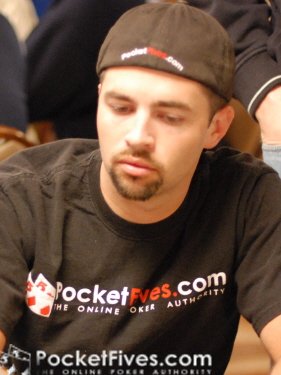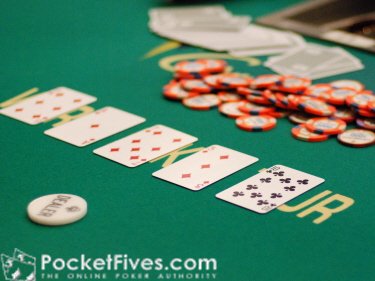Learning a New Game: When and How?

 Wanting to do something and actually doing it are two different things. After last week’s column about taking a leap and learning a new game, I received a few e-mails from players saying they wanted to learn a new game, but were unsure how to go about it. Some of the common questions were along the lines of, “How experienced should I be at No Limit Hold’em before I try a new game?” and “What stakes should I play when I try a different game?“
Wanting to do something and actually doing it are two different things. After last week’s column about taking a leap and learning a new game, I received a few e-mails from players saying they wanted to learn a new game, but were unsure how to go about it. Some of the common questions were along the lines of, “How experienced should I be at No Limit Hold’em before I try a new game?” and “What stakes should I play when I try a different game?“
The good thing about poker is there are very few, if any, hard and fast rules. Everything is fluid, changing, and situational. As far as learning a new game, it is all about you and what fits well with your style and situation. If you play for profit and a significant portion of your income, then limiting your exposure and making sure to not kill your earn rate are important and have to be factored in.
If you play recreationally for profit and don’t really count on your poker winnings, then you are in a different situation. If you play to win, but can handle regular poker losses, then you can take another approach all together.
For the person playing to pay his or her bills, branching out into a new game is dangerous. I would suggest that this type of player stick to their regular routine and budget some of their entertainment money to play new variations of poker. You will be putting in more hours at the table and not getting to do some of your normal away-from-the-grind activities, but this way you can maintain your regular monthly schedule without any added risk to your income on top of an already volatile profession.
Dropping down to lower stakes may be necessary, but push yourself to play at a level where you care enough about the money involved to play your best and make good decisions.
For the part-time profitable player that doesn’t count on poker money for day-to-day bills, time is a more precious resource than money and I would suggest allocating some of your poker time to playing a new game and mentally accepting that you may go from being a winning or breakeven player to a losing player for a month or two until you start to reap the benefits of learning the new game.
For this type of player, playing in similar or slightly smaller stakes games should be fine at first. If you feel like you are bleeding money early on, you can quickly drop down to lower stakes, but playing at a level you are familiar with will help you adjust and pick up the game as quickly as possible.
For the purely recreational player that has no expectation of winning, picking up a new game is simply a matter of deciding to play. You are already budgeting money to play poker, so just take some of this and put it towards a new game. Depending on the limitations of your budget, you may want to drop stakes to minimize your losses so you can continue to play as much as you normally do. The key here is to continue to enjoy yourself and play at a level such that when you win, you are excited to win and when you lose, it hurts a little, but not too much.
 As far as your experience in your game of choice before you branch out to new games, there is no set level at which you are ready. If you are a total novice and just learning the game, you may want to focus your efforts on one game at a time, but once you are comfortable at the table and understand the mechanics and some basic strategy, there is no harm in starting to pick up new games.
As far as your experience in your game of choice before you branch out to new games, there is no set level at which you are ready. If you are a total novice and just learning the game, you may want to focus your efforts on one game at a time, but once you are comfortable at the table and understand the mechanics and some basic strategy, there is no harm in starting to pick up new games.
If I were forced to pick the optimal time, I would say when your learning curve starts to level off a little bit would be the perfect time to add in new games. When you first start to play Hold’em, you improve quickly and regularly, but then at some point your game starts to level off and while you may still be improving, the increments are much smaller. At this point, adding a new game can give you a different perspective and jumpstart you back into regular and noticeable improvement in all of the games you are playing.
Learning a new game is more than just playing hands, so make sure you are spending some time reading material about the game, discussing hands and theory with other players whose games you respect, and spending some time thinking about the game and why you are doing the things you do. As you get the mental juices flowing, you will start to see all poker games in a little different light, and the increased perspective on the game will make you a better player across the board.
Court Harrington has worked on the business side of the poker industry in roles including tournament reporting for PocketFives, radio hosting for PokerRoad Radio, coaching for the WSOP Academy, and a variety of behind-the-scenes responsibilities. He also plays in cash games and tournaments. Harrington is currently doing consulting work and exploring business opportunities outside of the poker industry. You can contact him at PokerRoadCourt@gmail.com.




